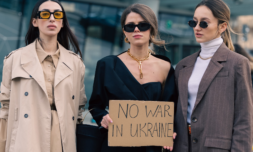If social media platforms spread ‘false information’ about the Russian military, Putin’s newly passed ‘fake news’ law threatens fines and lengthy prison sentences. TikTok has responded by suspending all new video uploads throughout the region.
The standoff between Big Tech and Russia is becoming more involved by the week.
A widespread social media embargo to prevent the Kremlin state from pushing propaganda or profiting from ad space – involving YouTube (Google), Meta, and Twitter – has now been escalated by the world’s most popular video-based platform, TikTok.
The vertical video app had already removed Russian state media from its content streams last week, but it appears more drastic measures have been taken in response to Putin’s latest actions.
Having retaliated to Twitter and Facebook by putting partial restrictions on their services throughout Russia, the President has now targeted foreign media and the entirety of social media with a blanket censorship legislation.
So, what exactly does this look like?
Russia’s new ‘fake news’ law
In an attempt to stem the constant flow of sanctions against Russia, Putin signed off on a vague ‘fake news law’ last Friday (March 4th).
This reactionary decree states that those who spread what Moscow deems to be ‘false information’ about the Russian military, are to be punished with sizable fines or up to 15-year prison sentences.
Potential for remand also encompasses those who publicly call for further sanctions against the nation, whether they’re from within Russia’s borders or beyond – access to the BBC website, predictably, has been blocked completely.
‘This law will force punishment (and very tough punishment) on those who lied and made statements which discredited our armed forces,’ Duma chairman Vyacheslav Volodin claims. Chiefly, any talk of ‘invasion’ or ‘war’ – contrary to Putin’s supposed ‘special military operation’ in the name of national security – is deemed illicit.
In light of this, we can expect foreign media services and social media platforms to suspend content created within Russia. The BBC and CNN have already announced they will not broadcast from Moscow whilst the terms of the law are reviewed.




















